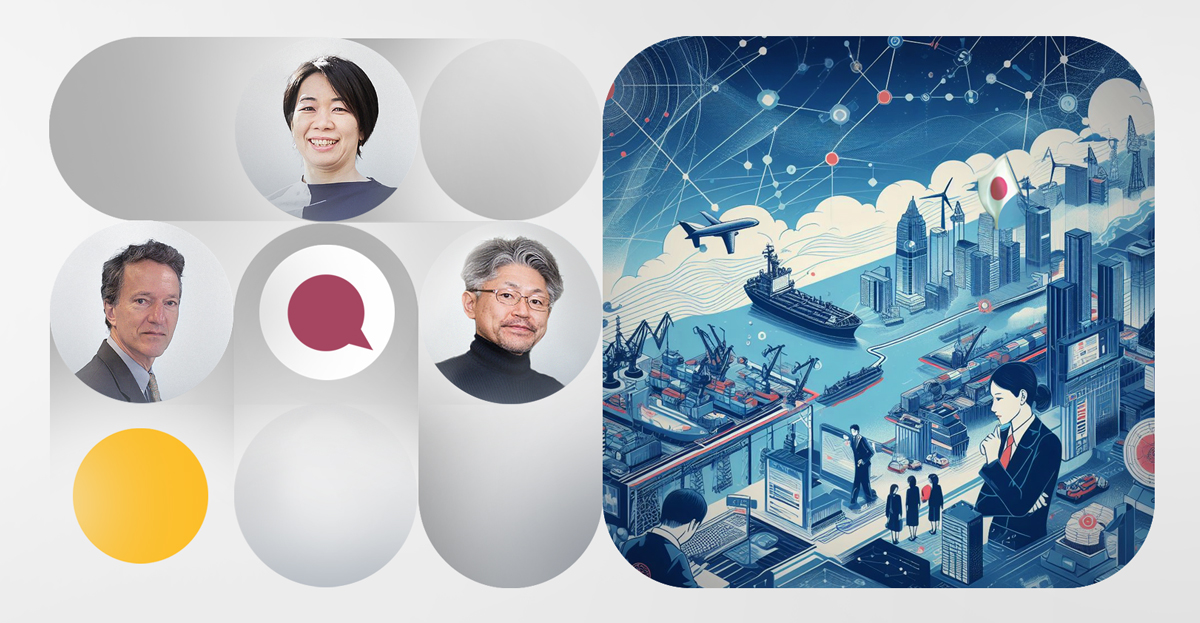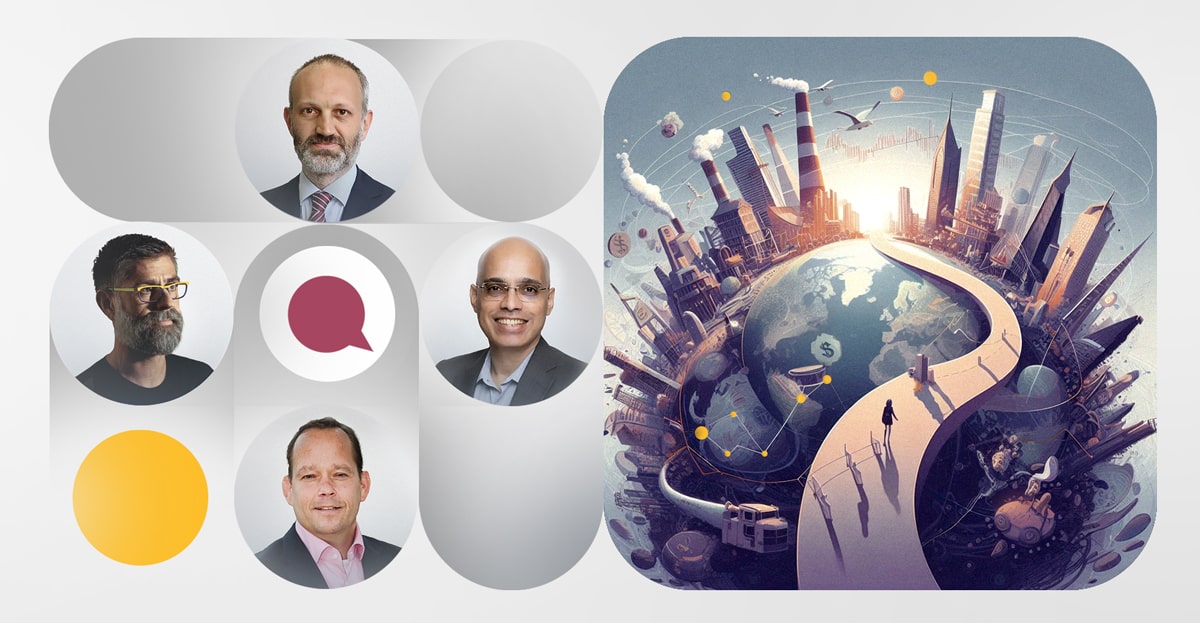The ultimate value chain series
Rethinking Value Chains in the Age of Social Responsibility
“When things are going badly, you see the true character of an organization and the true character of its value chain.”
As Runa Khan, the founder of NGO Friendship, points out, “When things are going badly, you see the true character of an organization and the true character of its value chain. That’s where true value comes in. Can they deliver?”
In an era defined by unprecedented value chain disruptions, building resilience has become the go-to risk mitigation strategy for organizations the world over. Being agile, adaptable, and flexible are as much a competitive advantage as they are a means of survival.
As anyone who knows anything about risk management will tell you, achieving those qualities extends beyond mere financial clout. It relies on the depth and strength of the partnerships you have within your value chain.
Indeed, the supply chains that navigated the pandemic most successfully were those that were able to leverage strong relationships to secure key lines; several pharma companies quite famously were able to reroute planes in mid-air to ensure they, and not another company, received much-needed stock.
While such examples are the exception rather than the rule, they do serve as a critical reminder. An organization is only as strong as its value chain. And these chains, in turn, are only as strong as the partnerships nurtured within them.
Building relationships & common values
The worlds of NGOs and Corporate Philanthropy are tightly linked and in more ways than is immediately obvious. While NGOs often find themselves on the receiving end of corporate generosity, it’s the shared pursuit of systemic change and their long-term commitments that defines their relationship. For corporates looking to re-envision their value chains, there’s something to be learned.
“You need to avoid philanthropy that is self-serving.”
“The starting point for corporate philanthropy is very often about how you provide more than just financial help,” says Corporate Philanthropy consultant Rien van Gendt. “Providing expertise and a network has just as much value. That said, you need to avoid philanthropy that is self-serving. The way you help cannot be too close to your company.”
His emphasis on genuine intent is crucial, especially in light of skepticism surrounding certain high-profile corporate philanthropy programs – take Nestlé for example.

Corporate philanthropy should, van Gendt says, be motivated by ‘an alignment of values and action’ between the benefactor and the beneficiary. That alignment of values naturally filters into the value chain.
Without common values, for example, it can be very difficult to build the trust and respect among stakeholders that is required to create resilience. But where it does exist, it is revealed as Khan says in times of tension, stress, and disruption.
For Friendship, the common value and goal among the organization and its stakeholders is the empowerment of people and communities. So, when COVID hit it was able to rely on strong relationships that shared a common goal – and to help the communities navigate the challenges posed by the pandemic.
“Yet, this isn’t the end – it can be the beginning of philanthropy’s true purpose.“
Partnerships in philanthropy are long-term endeavors. It’s not a one-off project. As van Gendt says, this is the true nature of a long-term partnership. “You cannot just say there is a project and at the beginning and end I find you, and that’s it.” If you’re looking to make a systemic change, then it takes time, patience, and respect for all involved.
“But, you could say that once you have indeed reached systemic change, you’ve completed the entire philanthropic value chain.” Yet, this isn’t the end – it can be the beginning of philanthropy’s true purpose: acting as a catalyst for new societal developments and introducing social venture capital to bring that vision to fruition.
Mutually beneficial agreements
When corporate philanthropy is effectively aligned, “it connects directly with the core business of the company,” van Gendt explains. “The next step in that process of the supply chain is to ask: do you simply act on your gut instinct once you know what you want to do, and assume that there are solutions? Or do you take the time to identify the root causes of a specific problem?
“Unless it’s a just value chain, it will be very difficult to achieve common benefit in the long-term.”
“I’ve observed various approaches: some organizations immediately react, while others, like the Van Leer Foundation I led, focus on more systemic solutions—such as working with parents to positively influence the lives of children from birth to six years old.”
For Runa Khan, the answer to that question is to approach value chains with a long-term vision. “There are so many ad-hoc interventions happening,” she says. “And with ad-hoc interventions you are basically looking at today and not at yourself as a part of a continuous team. And with value chains, it’s the same kind of issue. Unless it’s a just value chain, it will be very difficult to achieve common benefit in the long-term.”

“Value chains have to be conscience-driven,” she adds. “It needs to ensure a just system for the whole chain. At some point a crack will happen. It may not immediately impact the organization, but it can deeply affect society and the environment.”
Khan emphasizes a conscience-led strategy, highlighting that a value chain should be driven by fairness and justice. She cautions that once the system is stressed —and it inevitably will be— the more vulnerable societal and environmental elements on which we all depend will be under threat.
Short-termism overlooks the importance of seeing oneself as part of an ongoing collective effort. A truly equitable value chain is challenging to establish, but it’s the only way to secure lasting, shared benefits.
Value chains as a support network
The ideas circle neatly back round to both Khan’s and Van Gendt’s guiding principles – that at the heart of our efforts to optimize value chains, partnership – meaning long-term and shared conscience – should be axiomatic.
So, rather than stemming from false benevolence or a savior complex, transformation should be about relationships and resilience; about helping communities to flourish so that they may add their vast and untapped potential to the equation. After all, that’s what value chains are about, right?
To that end, there is much that corporate value chains can learn from their philanthropic and NGO counterparts. Drawing on her experience with Friendship, it’s clear to Khan what a resilient and sustainable value chain looks like.
“Corporations have to change their mindset.”
For organizations in that position, the path forward is clear. Creating impact through value chains requires an emphasis on ethics, fairness, and resilience. Values have to be aligned with long-term aims if lasting and meaningful social good is to come from them.
“There is a huge role for value chains to play in social enablement and social initiatives,” she says. “Corporations have to change their mindset. They have to consider whether they want short-term impact or long-term impact. If they prioritize short-term impact they may run into problems in their value chain.”
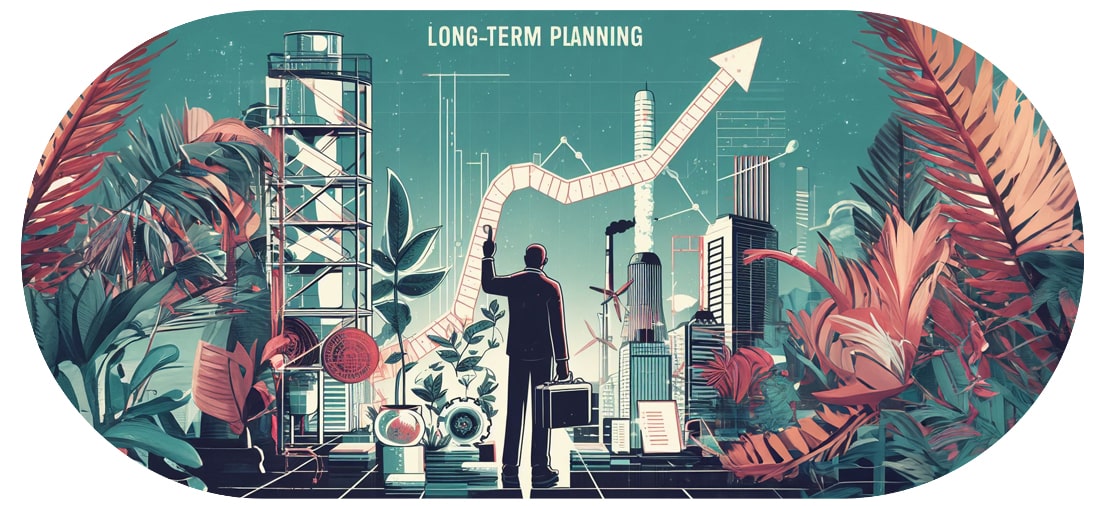
This shift toward long-term planning not only affects the robustness of value chains but also speaks to the emerging workforce. Companies fixated on short-term gains risk alienating younger talent. Young professionals increasingly seek to align their careers with their personal values.
In a world where conscious actions and genuine concern for others matter, it makes sense to embrace a value chain that supports sustainable and ethical practices. It’s not just about doing good, it’s also about ensuring the future vitality of the business.
These evolving perspectives on business practices pave the way toward a brighter future that promises greater equality and sustainability.
This article is part of the ultimate value chain series. Journalist Tom Holmes and Professor Michiel Steeman embark on a journey, interviewing academics, corporations, NGOs, and various industry experts to delve into the multifaceted dimensions of the ultimate value chain.
Our Experts
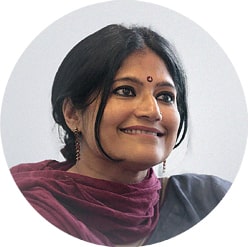
Runa Khan
Runa Khan is the Founder of Friendship, an International Social Purpose Organization established in 2002. In Bangladesh, a country facing humanity’s most pressing challenges, Friendship helps transform lives by working together with vulnerable people in the remotest communities. It brings direct services to over 7.5 million lives a year. While nurturing opportunity, dignity and hope, Friendship’s strategy focusses on four vital challenges: Saving Lives, Poverty Alleviation, Climate Adaptation and Empowerment. Over the years, Friendship has developed integrate inclusive development model in the north of Bangladesh, on the costal belt as well as in the Rohingya camps with health, water and sanitation, and educational services.
Learn more about Runa Khan
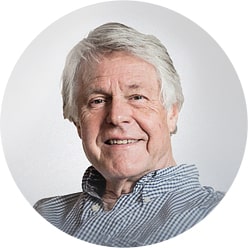
Rien van Gendt
After his career as the CEO of the Van Leer Foundation, he started his company Van Gendt Philanthropy Services. As an advisor, he works with several families, family offices, companies, and social organizations in the Netherlands and abroad. His focus is on effective philanthropy, investments, good governance, family cohesion, and the next generations.
Furthermore, he serves on the boards of several foundations and social organizations, such as Rockefeller Philanthropy Advisors (New York) and IMC Weekendschool (Amsterdam). In 2005, he received the Distinguished Grantmaker Award in the United States, becoming the first non-American to be honored with this award. In 2013, he was awarded the European Philanthropy Compass Prize.
The authors

Michiel Steeman
As managing partner of Inchainge he develops and promotes business simulations on topics such as supply chain management, working capital, sustainability and circular economy. The mission is to develop value chain leaders through experiential learning. www.inchainge.com
Learn more about Michiel Steeman

Tom Holmes
Tom is a freelance supply chain journalist with 15 years industry experience. He has worked for some of the biggest names in shipping including Maersk, DNV and ShipServ, and has written extensively on a broad range of supply chain topics for a variety of publications, including Supply Management and Supply Chain & Sustainability.

